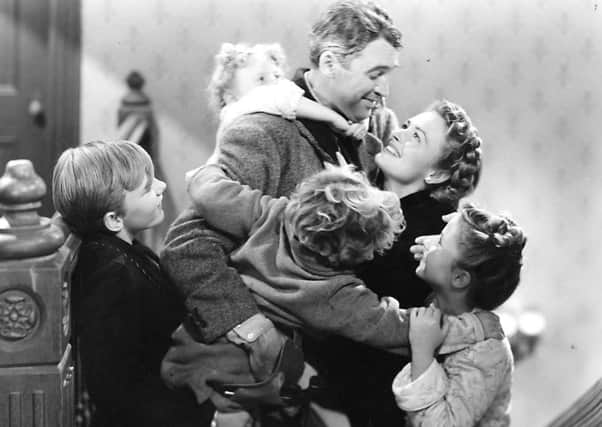It could be a wonderful life in Scotland – Prof Sir Harry Burns


Many will have watched It’s A Wonderful Life over Christmas. If you did, you may not have appreciated the political, economic and health implications of the story. In the movie, George Bailey has spent his entire life supporting the people of Bedford Falls. He runs a building and loan company which pays sensible interest to savers. He builds affordable homes and gives low interest loans to allow people to buy them. He is generous in supporting people who want to move on in life. As a result, the residents of Bedford Falls are happy and safe and feel in control of their lives. They have a real sense of wellbeing.
However, the Bailey Building and Loan Company is under attack from the evil and greedy Henry Potter whose sole interest is money. He wants to put George’s company out of business since that would allow him to take control of Bedford Falls and make even more money. Potter’s opportunity comes on Christmas Eve, George’s Uncle Billy loses the business’s $8,000 on his way to deposit it in the bank. Potter finds the money and steals it. George realises that he will be charged with embezzlement and sent to jail and the company will collapse, finally allowing Potter to take over the town. He can’t stand the shame and wishes he had never been born. He decides on suicide but his guardian angel turns up and shows George what the world would be like without him. Bedford falls is now Pottersville. It is full of sleazy bars and clubs. There is violence on the streets. People look hunted and fearful and his old friends are drunks, living rough. Wellbeing levels are rock bottom.
Advertisement
Hide AdAdvertisement
Hide AdHealth is more than simply the absence of illness. A person is healthy if they experience a state of complete physical, mental and social wellbeing and feel able to be in control of their lives.
The residents of Bedford Falls clearly have a positive sense of health and wellbeing. The residents of Pottersville, on the other hand, experience poverty, crime, homelessness and addiction. In fact, all the problems of an unequal society.
In 2015, the Scottish Government stated its intention to tackle inequality by pursuing economic growth from which all would benefit. It included this principle of “inclusive growth” in its Economic Strategy. This is “growth that combines increased prosperity with greater equity: that creates opportunities for all and distributes the dividend of increased prosperity fairly”. This aspiration is progressing with Scotland playing a significant part in the Wellbeing Alliance with governments of other progressive small countries such as New Zealand and Iceland.
200 years ago, the 19th century, French lawyer and social activist, Frederic Ozanam observed: “The problem which divides people today is not a political problem: it is a social one. It is a matter of knowing which will get the upper hand: the spirit of selfishness or the spirit of sacrifice; whether society will go for ever increasing profit, or for everyone devoting themselves to the common good.”
One can only speculate what Ozanam might make of modern politics and the recent UK election results.
However, by pursuing inclusive growth and an economy focussed on ensuring the wellbeing of its people, Ozanam might agree that Scotland is one of the few countries on course to enhance the common good.
Professor Sir Harry Burns is director of global public health at Strathclyde University